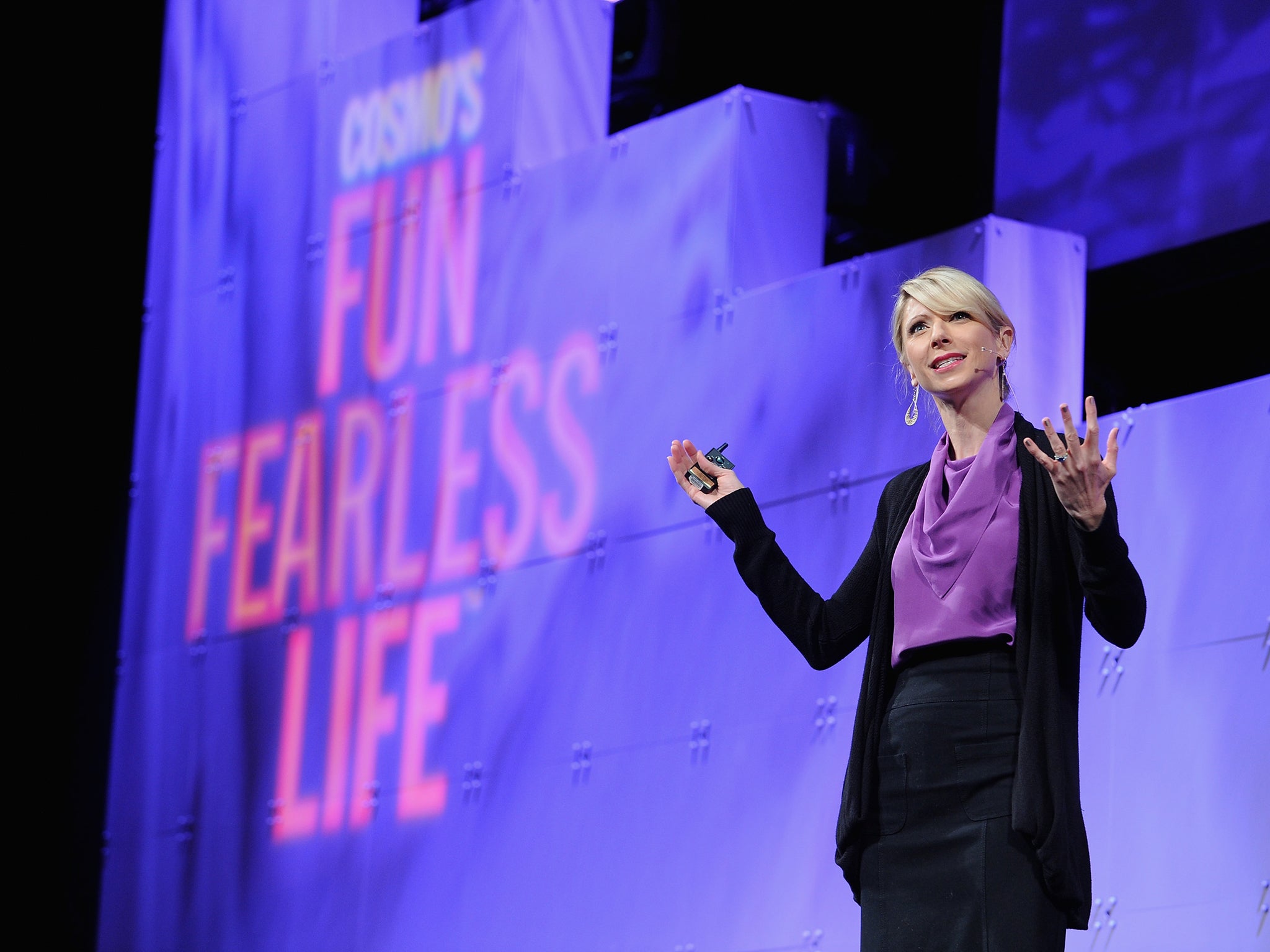Harvard psychologist Amy Cuddy says your success in any situation hinges on three things
If you're confident in yourself, other people will be more likely to be confident in you, too

Your support helps us to tell the story
From reproductive rights to climate change to Big Tech, The Independent is on the ground when the story is developing. Whether it's investigating the financials of Elon Musk's pro-Trump PAC or producing our latest documentary, 'The A Word', which shines a light on the American women fighting for reproductive rights, we know how important it is to parse out the facts from the messaging.
At such a critical moment in US history, we need reporters on the ground. Your donation allows us to keep sending journalists to speak to both sides of the story.
The Independent is trusted by Americans across the entire political spectrum. And unlike many other quality news outlets, we choose not to lock Americans out of our reporting and analysis with paywalls. We believe quality journalism should be available to everyone, paid for by those who can afford it.
Your support makes all the difference.Harvard psychologist Amy Cuddy is perhaps best known as the creator of the “power pose.”
As she described in her 2012 TED Talk, power-posing is about taking advantage of the body-mind connection: You adopt the body language of powerful people so that you feel and act more confident.
But power posing is just one path to a state of calm self-confidence that will help you succeed in challenging situations. That state, which Cuddy calls “presence,” is the subject of her new book by the same name.
Cuddy defines presence as being attuned to and able to express your full potential. When you're present, you approach challenges without a sense of threat.
Whether you're interviewing for a job or pitching your startup, people can tell right away if you're present, and they judge you more positively when you are.
In an interview with Business Insider, Cuddy said there are three things people see when you're present:
1. You believe your story
When you're present, you demonstrate conviction and passion so that other people come to believe your story, too.
In the book, Cuddy describes a yet-unpublished study she conducted, in which participants went through mock interviews. For five minutes, they had to persuade the interviewer that they were the best person for the job, while being completely honest. All the while, the interviewer held a completely neutral expression.
Three independent pairs of judges watched videos of the interviews, looking for presence, believability, and hireability. Sure enough, the interviewees who were rated more present were also rated more believable and more hireable.
Cuddy writes: “Presence mattered to the judges because it signaled authenticity, believability, and genuineness; it told the judges that they could trust the person, that what they were observing was real.”
confident presentation public speakingJon Gosier/Flickr
“A truly confident person does not require arrogance.”
2. You're confident without being arrogant
In the book, Cuddy quotes a venture capitalist describing what turns him off during an entrepreneur's pitch: “They're too high energy and aggressive, maybe a little pushy. It seems defensive, I don't expect them to have all the answers. Actually, I don't want them to have all the answers.”
Being open to feedback is key, Cuddy told Business Insider. The more you shut down other people and their perspectives, the less appealing you become. That's because it can seem like you're trying to cover up a sense of uncertainty.

“A truly confident person does not require arrogance, which is nothing more than a smoke screen for insecurity,” Cuddy writes. “A confident person can be present to others, hear their perspectives, and integrate those views in ways that create value for everyone.”
3. Your verbal and nonverbal communication is in sync
When we're being inauthentic — or when we're intentionally deceiving someone — Cuddy said our verbal and nonverbal communication is incongruent.
In the book, she explains that's because you're constantly trying to adjust what you're saying and doing to create the impression you think others want to see.
On the other hand, when we're present, our verbal and nonverbal behavior matches. People aren't distracted trying to figure out why something feels “off,” and they're more likely to put their trust in you.
Ultimately, if you're confident in yourself, other people will be more likely to be confident in you, too. It doesn't necessarily mean you'll get the job or the investor's money, but you'll walk away knowing that you did the best you could — and the right opportunity for you is out there.
Read more:
• Investors are abandoning Barclays' stock as legal costs spiral
• European manufacturing is in the toilet
• The 29 cities with the worst quality of life in the world
Read the original article on Business Insider UK. © 2015. Follow Business Insider UK on Twitter.
Join our commenting forum
Join thought-provoking conversations, follow other Independent readers and see their replies
Comments